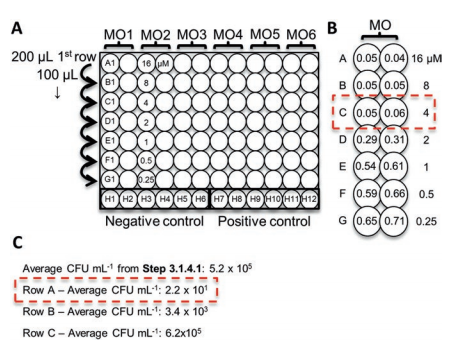As an expert in providing solutions to assist virology and microbiology research, Creative Diagnostics has announced the launch of its new Minimum Bactericidal Concentration (MBC) Assay for antibacterial testing. The new assay is a more accurate and sensitive measure of the effectiveness of antibiotics.
MBC is the lowest concentration of antimicrobial agent required to kill a specific bacterium. It can be determined by identifying the lowest concentration of antimicrobial agent that will reduce the survival of the initial bacterial inoculum by more than 99.9%.
In antimicrobial testing, the MBC complements the Minimum Inhibitory Concentration (MIC). The MIC test indicates the lowest level of an antimicrobial agent that inhibits the growth of a microorganism, whereas the MBC shows the lowest level of an antimicrobial agent that causes microbial death. This means that even if a particular MIC exhibits good bacterial inhibition, inoculation of bacteria onto agar may still result in bacterial proliferation because that concentration of antimicrobial does not result in complete bacterial death.
It is generally accepted that an antimicrobial agent is bactericidal if the MBC does not exceed four times the MIC. Because the MBC is the lowest concentration of the antimicrobial agent, it is expressed in micrograms per milliliter (µg/mL). If the MBC of the test drug against the test microorganism is ≧32 times the MIC, the microorganism is considered to be resistant to the test drug.
The MBC test can be used to determine the minimum reagent concentration required to achieve bactericidal efficacy. It is important to note that this method allows the antimicrobial agent to remain in contact with the test microorganism for an extended period of time, approximately 18 hours. Therefore, the test result is the minimum concentration required to kill the test organism, taking into account all other factors contributing to bactericidal activity.
Creative Diagnostics now offers comprehensive MBC Testing Services to the scientific community, including culturing to detect standard test bacteria, minimum bactericidal concentration testing, and statistical analysis of experimental results. This new MBC test is a reliable and relatively inexpensive tool for ranking a wide range of antimicrobials by potency for screening purposes, as well as for evaluating formulation problems, especially when formulators suspect that the active ingredient is influenced by other ingredients.
Creative Diagnostics' MBC detection utilizes a broth microdilution method. First, a pure culture of the specified microorganism is incubated overnight and then diluted to the appropriate concentration in a growth-supporting broth (usually Muller Hinton Broth). The compound to be tested is serially diluted and an equal volume of the specified microorganism is used to inoculate all dilutions of the compound to be tested. Test tubes or microtiter plates are then incubated at the appropriate temperature and time. Observations are then made and turbidity indicates microbial growth and the lowest concentration at which no bacterial growth can be visually detected, i.e., the MIC.
For more information, please visit https://antiviral.creative-diagnostics.com/minimum-bactericidal-concentration-mbc-assay.html.
About Creative Diagnostics
Headquartered in New York, Creative Diagnostics is a consulting and experimental service provider specializing in virology and microbiology. The company provides comprehensive solutions to conquer obstacles in virology and microbiology research, from high-security infrastructure provision, biosafety regulation elucidation, to expert viral system assistance.






Comments